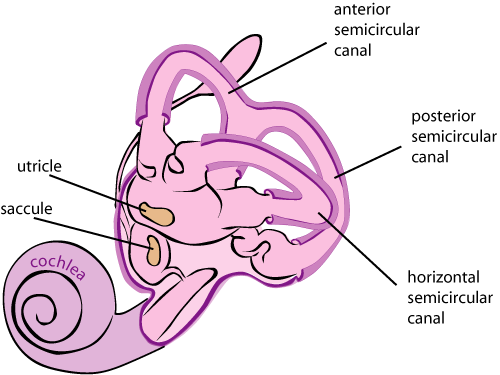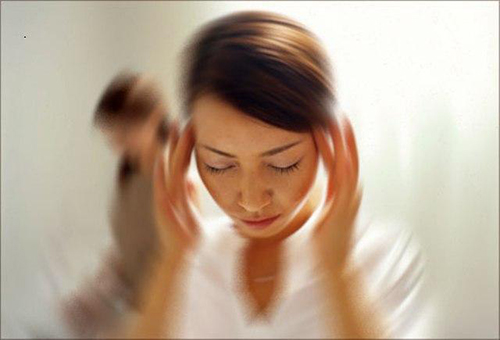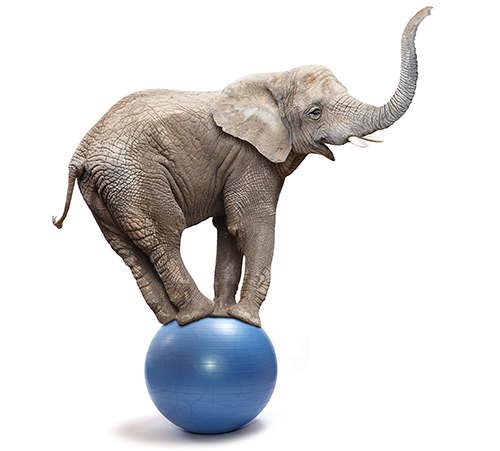
the problem
For some people the impact of having a dizziness and balance problem is annoying, but not severe. For others, however, the impact can be debilitating, making it difficult to walk, drive, work, and even enjoy spending time with family and friends.
The impact
Changes in lifestyle are commonly described by people with dizziness and balance problems, and can lead to a range of additional issues. Financial pressures associated with reduced work hours can put stress on relationships with family and friends and many people report feelings of frustration, loss of confidence, anxiety and depression.
Vestibular rehabilitation
The good news is that in many cases dizziness and balance problems can be addressed, using a customised program of vestibular exercises, known as vestibular rehabilitation.
Dizzy Day Clinics can help
Dizzy Day Clinics is staffed by physiotherapists with specific vestibular rehabilitation skills. Dizzy Day staff will draw on the skills of other medical specialists as required, and prefer to act on referral from a consultant or local doctor.

The vestibular system
The vestibular system of the inner ear is made of five sensory organs (see diagram): three semi-circular canals; and two otolith organs.
The purpose of the vestibular system is to monitor the position and motion of your head in space. The semi-circular canals are responsible for detecting rotation, for example when you nod or shake your head. The otolith organs are responsible for detecting motion along a line, for example when your car stops suddenly, or when you lean to one side.
The inner ear structures send signals into areas of the brain, which subsequently are involved in co-ordinating movements of your eyes and your head, and in maintaining balance.
Symptoms
There are a variety of symptoms associated with disorders of the vestibular system. These include:
- dizziness;
- vertigo (an illusion of motion);
- blurred vision;
- nausea;
- impaired balance;
- unsteady walking;
- reduced concentration; and
- increased fatigue.
These types of symptoms may subsequently lead to other problems, such as loss of confidence, frequent falls, work-related issues, headaches, difficulties with driving, depression and feelings of significant anxiety and fear. Commonly people with suspected disorders of the vestibular system are referred for diagnostic testing (also known as vestibular function testing). This type of testing can help to diagnose the cause of your specific vestibular problem.

Vestibular disorders
There are a range of disorders that commonly interfere with the functioning of the vestibular system and which can result in the types of symptoms described previously. These include:
- vestibular neuronitis (a viral infection of the inner ear);
- acoustic neuroma (a benign tumour which grows along the course of the vestibular nerve);
- Menieres Disease (a fluctuating disorder which involves the build-up of fluid in the inner ear);
- Benign Paroxysmal Positional Vertigo (BPPV) (a disorder caused by debris freely floating in the fluid of the inner ear);
- otoxicity (an adverse reaction of inner ear structures to certain medications);
- vestibular migraine (a variant of classic migraine where the main symptom is of dizziness rather than headache);
- stroke (an interference with the blood supply to the inner ear and vestibular areas within the brain); and
- trauma (motor vehicle accidents, significant falls)
These are only a few examples of common disorders involving the vestibular system.
Vestibular rehabilitation
Vestibular rehabilitation is an exercise-based physiotherapy approach to the treatment of vestibular problems. It was developed originally in the UK, but has gained momentum as a recognised and effective intervention over the past 30 years.
It is now considered to be the most successful management approach for people with dizziness and balance problems associated with disorders of the vestibular system.
Our approach is typically to develop a customised program of vestibular exercises that are designed to re-calibrate the balance system. The vestibular exercises are customised to each individual and are developed based on the initial vestibular assessment findings.
An additional part of our physiotherapy program is the assessment and treatment of Benign Paroxysmal Positional Vertigo (BPPV). This is a very specific vestibular problem that causes symptoms of vertigo that are provoked by rolling over in bed, sitting up in the morning and tilting the head back. We specialise in the assessment of BPPV and use a range of treatment techniques to manage this condition. This type of approach can be enormously successful in treating the symptoms of BPPV.

